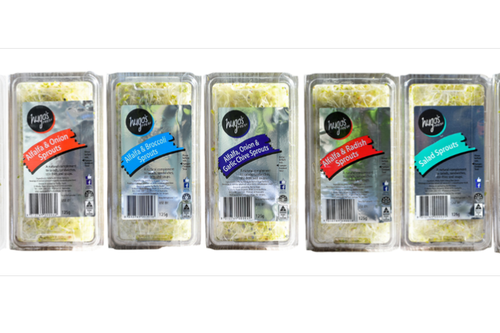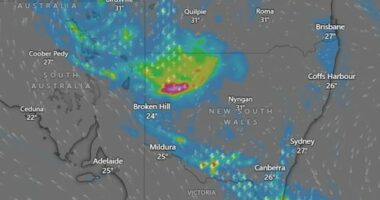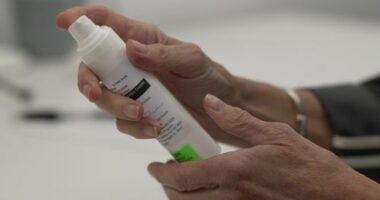Share this @internewscast.com
Alfalfa sprouts have been pulled from supermarket shelves across the country amid concerns they may be linked to a salmonella outbreak that has sickened dozens of individuals.
The recall comes in the wake of a collaborative investigation by health and food safety agencies into a spike in cases of a rare salmonella strain.
Parilla Fresh, the company behind the product, has initiated a voluntary recall as authorities continue their investigation and conduct further testing.

In light of the ongoing inquiry, health officials have confirmed that at least 44 people nationwide have contracted this uncommon salmonella strain, including 18 cases reported in New South Wales (NSW).
Keira Glasgow, director of the One Health Branch at NSW Health, urged consumers to inspect their refrigerators and advised against consuming the potentially contaminated sprouts.
“The consumption of these affected alfalfa sprouts poses a risk of illness,” Glasgow cautioned.
Varieties affected are: Aussie Sprouts Alfalfa Sprouts 125g, Hugo’s Alfalfa Onion & Garlic Sprouts 125g, Hugo’s Alfalfa Radish Sprouts 125g, Hugo’s Alfalfa & Onion Sprouts 125g, Hugo’s Salad Sprouts 125g, Hugo’s Alfalfa & Broccoli Sprouts 125g and Hugo’s Trio Sprouts Selection 125g.
They have use by dates up to and including 20/11/25.
The products have been sold at Woolworths and Coles in New South Wales, the Australian Capital Territory, Queensland, Victoria, South Australia and the Northern Territory.
Independent grocers including IGA in NSW; Harris Farm in NSW, the Australian Capital Territory and Victoria; Sydney Markets in NSW and Melbourne Markets in Victoria have also sold them,
“Anyone who has consumed alfalfa sprouts should be on the lookout for symptoms, which include: headache; fever; stomach cramps; diarrhoea; nausea; and vomiting,” Glasgow said.
Symptoms usually start six to 72 hours after exposure to the bacteria and usually last for four to seven days but they can sometimes last a lot longer.
“Most people recover within a week by having lots of rest and drinking plenty of fluids such as water or oral hydration drinks from a pharmacy,” Glasgow said.
“While anyone can gets almonella infection, infants, the elderly and people with poor immune systems are more likely to have severe illness.
“These people may need antibiotics from their doctor or, in more severe cases, hospitalisation.”
Consumers should return the product to the where they bought it for a full refund.
You should contact your doctor if symptoms last longer than a few days, diarrhoea is severe or bloody, you are at risk for severe salmonella (young children, older people, and people with poor immune systems) or you are worried.













